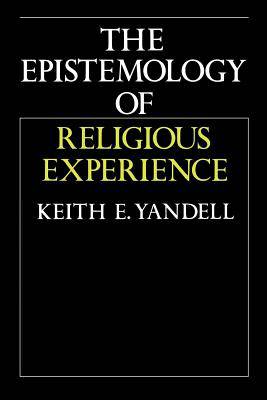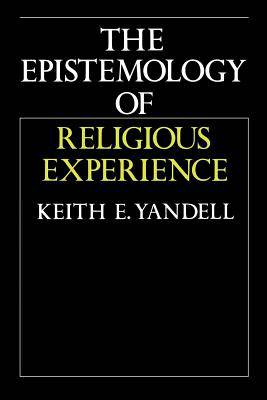
Door een staking bij bpost kan je online bestelling op dit moment iets langer onderweg zijn dan voorzien. Dringend iets nodig? Onze winkels ontvangen jou met open armen!
- Afhalen na 1 uur in een winkel met voorraad
- Gratis thuislevering in België vanaf € 30
- Ruim aanbod met 7 miljoen producten
Door een staking bij bpost kan je online bestelling op dit moment iets langer onderweg zijn dan voorzien. Dringend iets nodig? Onze winkels ontvangen jou met open armen!
- Afhalen na 1 uur in een winkel met voorraad
- Gratis thuislevering in België vanaf € 30
- Ruim aanbod met 7 miljoen producten
Zoeken
€ 83,95
+ 167 punten
Uitvoering
Omschrijving
This book addresses fundamental questions in the philosophy of religion. Can religious experience provide evidence for religious belief? If so, how? Keith Yandell argues against the notion that religious experience is ineffable, while advocating the view that strong numinous experience provides some evidence that God exists. He contends that social science and other non-religious explanations of religious belief and experience do not cancel out the evidential force of religious experience. The core of Yandell's argument concerns the formulation and application of an appropriate principle of experimental evidence. A final chapter considers the relevance of nonexperimental, conceptual issues. An attractive feature of the book is that it does not confine its attention to any one religious cultural tradition, but tracks the nature of religious experience across different traditions in both the East and the West.
Specificaties
Betrokkenen
- Auteur(s):
- Uitgeverij:
Inhoud
- Aantal bladzijden:
- 384
- Taal:
- Engels
Eigenschappen
- Productcode (EAN):
- 9780521477413
- Verschijningsdatum:
- 25/11/1994
- Uitvoering:
- Paperback
- Formaat:
- Trade paperback (VS)
- Afmetingen:
- 155 mm x 231 mm
- Gewicht:
- 576 g

Alleen bij Standaard Boekhandel
+ 167 punten op je klantenkaart van Standaard Boekhandel
Beoordelingen
We publiceren alleen reviews die voldoen aan de voorwaarden voor reviews. Bekijk onze voorwaarden voor reviews.











